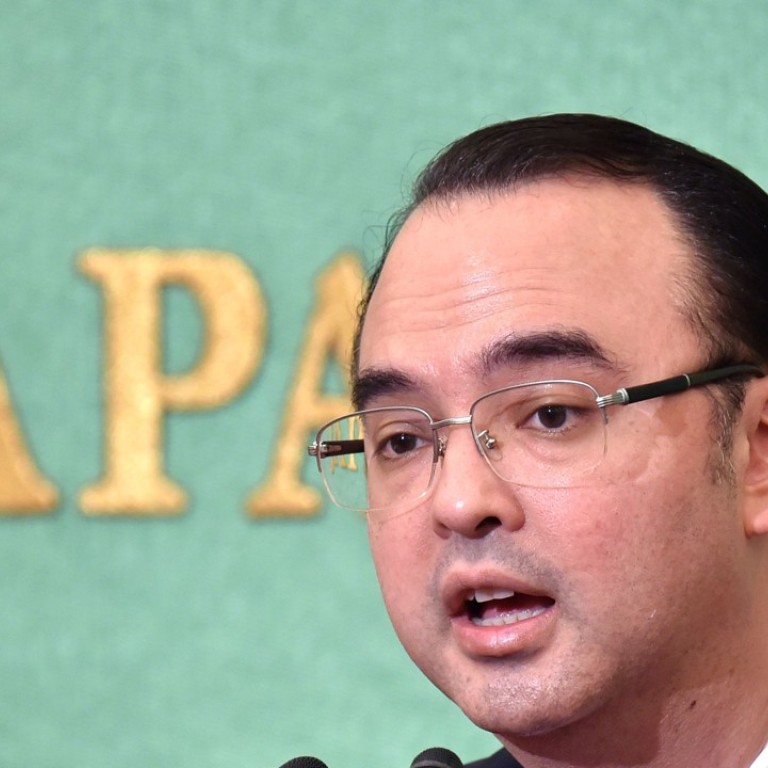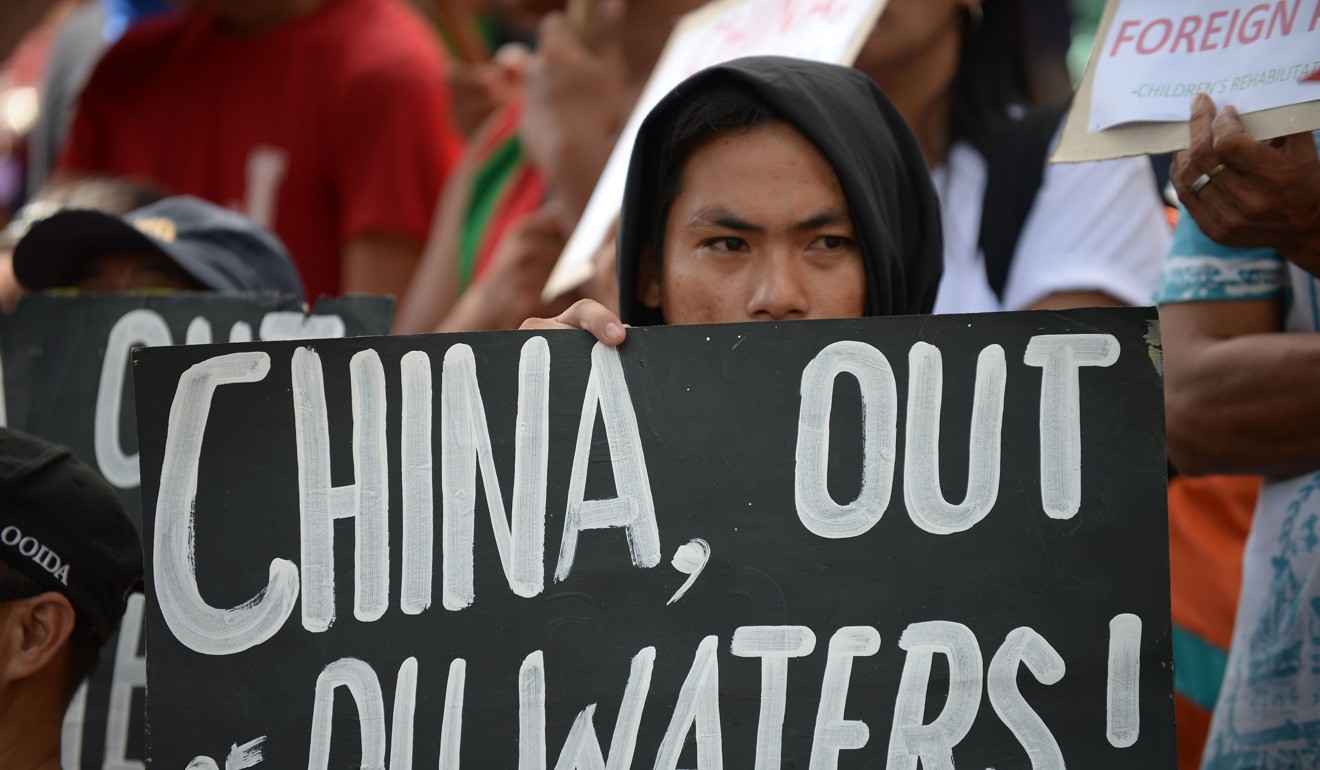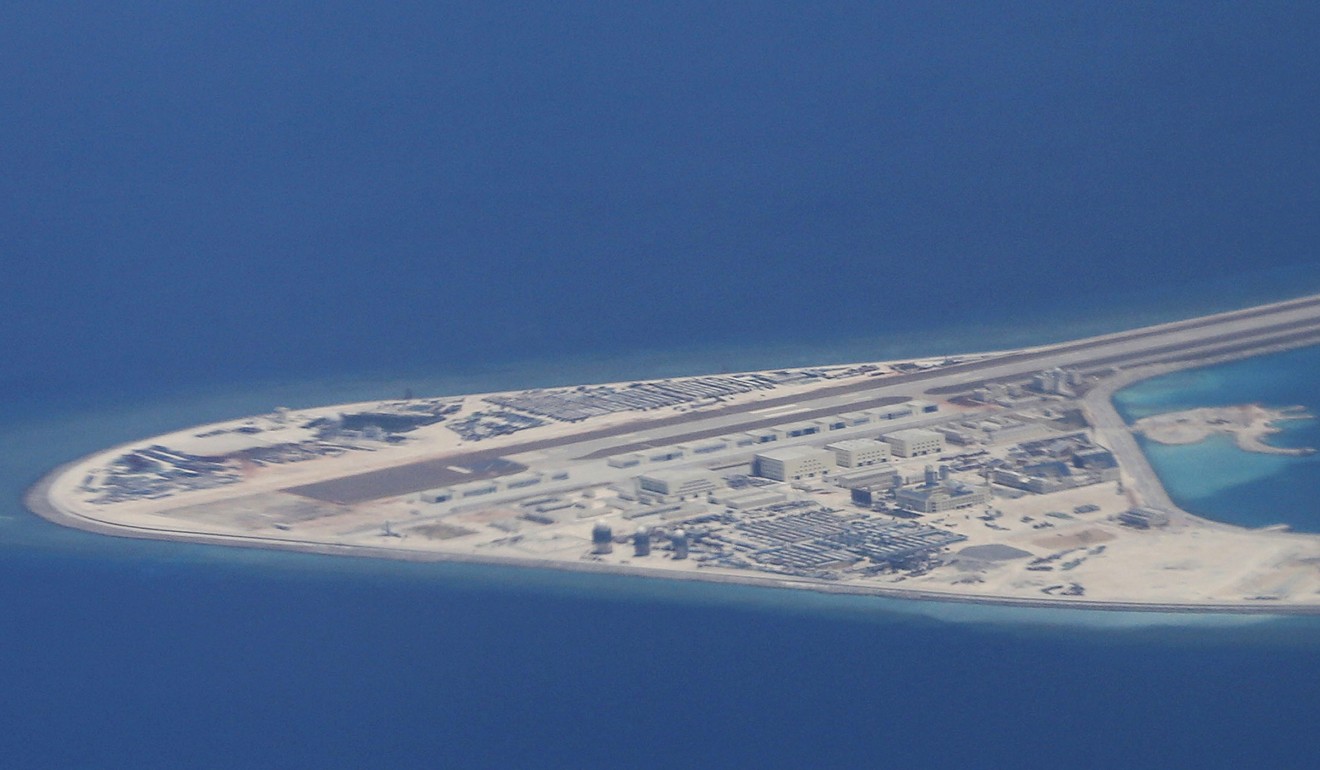
Can the Philippines balance Beijing’s interests with Asean’s?
Alan Peter Cayetano’s four-day trip, which starts Wednesday, comes as China and Asean craft a code of conduct framework for the disputed waters
Philippines’ newly appointed foreign secretary is expected to face a challenge when his first official visit to China begins on Wednesday, as he tries to balance the competing interests of Beijing and Southeast Asian countries against the South China Sea disputes, according to analysts.
The South China Sea disputes are expected to dominate the agenda for Alan Peter Cayetano’s four-day visit, which comes as China and the Association of Southeast Asian Nations (Asean) near completion on a framework for a code of conduct in the busy waters, analysts say. The completed framework will be unveiled in August at the bloc’s foreign ministers meeting in Manila.

Cayetano, who was appointed in May as Manila’s top diplomat, will meet with his Chinese counterparts Wang Yi and Yang Jiechi during the trip.
The two sides will exchange ideas on relations between China and the Philippines and China and Asean, as well as on international and regional issues of common concern, Geng Shuang, a spokesman for China’s foreign ministry, said on Monday.
While the two sides are likely to discuss bilateral trade and infrastructure cooperation, Chinese analysts said the unusually long duration of Cayetano’s visit suggests the Filipino envoy is getting set for a time-consuming, uphill task – achieving consensus with Beijing on finalising the framework for the code of conduct.
“The Philippines, as the rotating chair of Asean this year, has been under immense pressure to balance the interests of both China and other Asean states,” said Zhang Mingliang, a Southeast Asian affairs expert with Jinan University.
The Southeast Asian claimants had hoped to push for a binding code of conduct that would curb China’s efforts to reclaim and militarise the islands in the South China Sea. Beijing, however, has been reluctant to make such a promise and instead regards the code of conduct only as a “political statement”, Zhang said.
Relations between Beijing and Manila have improved significantly since Philippine president Rodrigo Duterte took office last year and promised to put aside territorial disputes in exchange for trade and economic assistance from China.

Cayetano, Duterte’s vice-presidential running mate during the election campaign, reportedly was involved in launching negotiations with China on a series of multibillion-dollar deals shortly after Duterte was elected last year, according to Philippine media.
But tensions between China and Vietnam, which has been the only and most vocal claimant since Manila’s realignment, resurfaced recently after China unexpectedly cancelled a border defence meeting with Vietnam, reportedly due to disagreements over the South China Sea.
The recent resumption of interaction between the Vietnamese and Philippine navies in the South China Sea has also alarmed Beijing, which is expected to launch a protest with Manila during Cayetano’s visit, observers said.
The Philippine and Vietnamese navies conducted a sports meeting last week on Southwest Cay, an islet under Vietnamese control in the Spratly Islands in the South China Sea. Beijing may see the activity as the uniting against China of two countries with claims in the region’s maritime disputes, said Xu Liping, a professor at the Institute of Asian-Pacific Studies in the Chinese Academy of Social Sciences.

